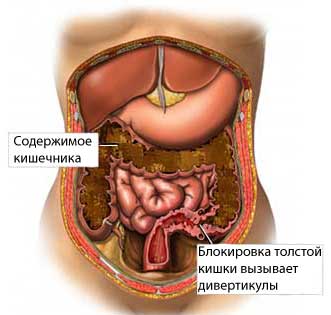Mechanical bowel obstruction
Description of mechanical bowel obstruction
Mechanical bowel obstruction – partial or complete blockage of the bowel. Blockage may occur anywhere in the small or large intestine. Obstruction intestines often occurs in the small intestine. When the bowel is blocked, on it can not pass liquid and food. Over time, food, liquid and gases accumulate in the area above the blockage. This can cause pain and swelling in the abdomen.

Causes of mechanical obstruction of the intestine
Most small bowel blockages occur due to adhesions. Commissure – scar tissue, through which the fusion of the intestine with the abdominal wall or other organs. Most of obstructions caused by tumors of the colon.
Some causes of bowel obstruction:
- Hernia;
- Tumors;
- Inflammation or swelling of the colon;
- Foreign matter in the intestine;
- Gallstone;
- Volvulus (twisting of the intestine);
- Intussusception;
- Scar tissue from previous abdominal surgery, or surgery in the pelvis, especially after gynecological or gastrointestinal operations.
Risk factors for mechanical bowel obstruction
Risk factors for ileus include all, that can cause buildup of scar tissue or a blockage:
- Ulcer;
- Previous surgery gastrointestinal and gynecological surgery;
- Diverticulitis;
- Crohn's Disease;
- Hirschsprung's disease (children);
- Cancer of the gastrointestinal tract.
The symptoms of mechanical intestinal obstruction
The symptoms of mechanical intestinal obstruction may include:
- Abdominal pain;
- Abdominal distention;
- Abdominal cramps;
- Nausea;
- Vomiting;
- Diarrhea;
- Severe constipation, Failure of gas or stool;
- Vspuchivanie life;
- Fever;
- Rapid pulse;
- Bad breath odor.
Complications from an untreated obstruction can include strangulation, which cuts off the blood supply to part of the intestine.
Diagnosis of the mechanical bowel obstruction
The doctor will ask about your symptoms and medical history, perform a physical examination. Also, the doctor uses a stethoscope to listen for sounds of the intestine. If the normal bowel sounds are absent, or audible high, ringing sound, this may be a sign of ileus. Further tests may include:
- Blood tests;
- Urine;
- X-ray of the abdomen;
- Barium enema – analysis, for which the bowel is filled with a solution of a barium salt, and do an X-ray of the colon;
- Endoscopy – rectally inserted a thin tube to study the intestine;
- Computed tomography of the abdomen.
Treatment of mechanical bowel obstruction
Intestinal obstruction can be serious, even fatal. If the doctor says, that you may have a bowel obstruction, you will be hospitalized. Treatment will depend on the, which part of the intestine is blocked, and causes, which causes clogging.
Possible treatments include the following:
- Levin tube – a thin tube inserted through the nose and stomach to suction fluid, which accumulates in the lock;
- Intravenous fluids – Vomiting and diarrhea can cause dehydration and imbalances in body fluids. If the body is dehydrated, you are introduced fluid and electrolytes (potassium and sodium salt) into one of the veins;
- Medicines – You can enter antibiotics or painkillers drip or nasogastric tube;
- Removal of fecal blockage – if the obstruction causes feces, these may be removed. The doctor inserts a gloved finger into the rectum, to loosen the blockage and remove the feces;
- Endoscopy – thin tube is introduced through the line into the colon;
- Operation – depending on the cause of obstruction, perhaps, need surgery, that:
- Remove scar tissue, tumor, gallstones, foreign substances and other causes lock;
- Cure a hernia.
During the operation, it can be removed some part of the intestine. Probably, After surgery you will need a nasogastric tube temporarily. Besides, You may need to use antibiotics and analgesics during recovery.
If you are diagnosed with a mechanical bowel obstruction, Follow your doctor's instructions.
Prevention of mechanical bowel obstruction
Prevention of bowel obstruction depends on the cause. Some types of ileus may not be prevented. Actions, which can reduce the risk of ileus:
- We need to treat hernia, before it can cause blockage;
- To reduce the risk of fecal blockage and diverticulitis:
- Consume Products, rich in fiber;
- Drink plenty of fluids, at least, 2-3 liters per day;
- Exercise regularly.
